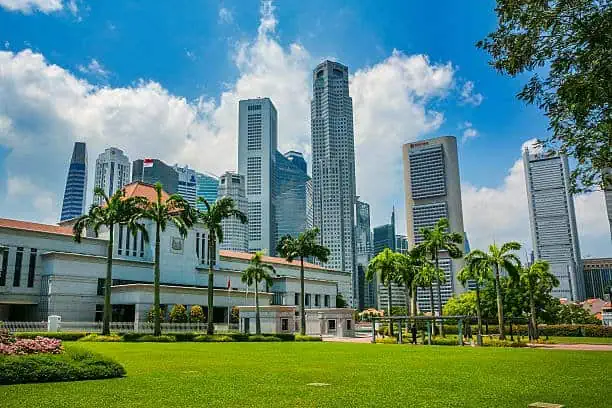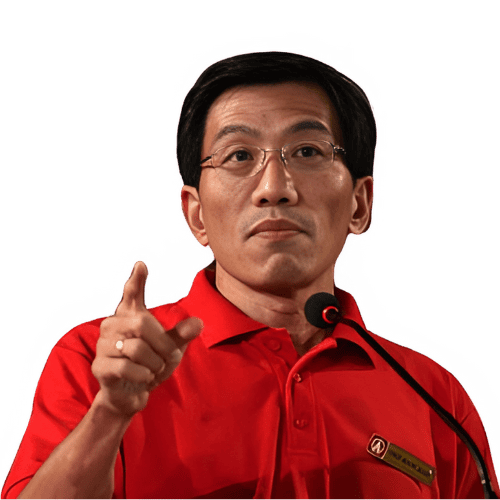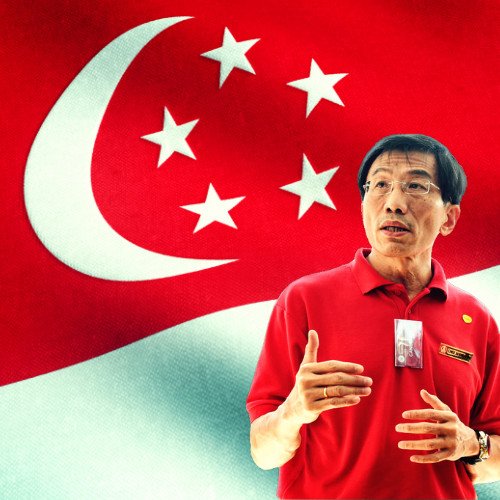Decoding the PAP: Spin, Strategy, and Singapore’s Narrative

Reference from 
The Rising Cost of Living: A Strain on Singaporeans
TL;DR: In exploring the intricate relationship between the PAP, media control, and public sentiment, this blog highlights the need for a more engaged and balanced political discourse in Singapore. Empowering the opposition could foster a more accountable governance structure, enhancing democratic practices for all citizens.
The PAP: Benevolent Intent or Strategic Spin?
Petrol Duty Hikes
When Deputy Prime Minister Heng Swee Keat announced a 23% increase in petrol duties, he framed it as a step towards encouraging environmental responsibility. He stated,
“Just like how we have made deliberate decisions to protect our environment…”
But is it really about protecting the environment, or is it simply a clever way to increase government revenue?
Urban Expansion vs. Environmental Commitment
Here’s where things become murky. On one hand, the government talks about green initiatives. On the other, they continue to clear the land for new BTO flats. This ongoing urban expansion raises a critical question: How can we trust a government that promotes environmental protection while simultaneously pushing urban growth?
Public Trust Issues
- The disparity between government claims and citizen sentiments creates distrust.
- The decision to raise water prices by 30% in 2017 echoes this sentiment. Many wonder why ministers can afford luxuries while ordinary citizens struggle.
The inconsistency leads to skepticism among the public. Are we merely being manipulated by government rhetoric? Such inconsistencies can erode public trust, and it’s essential to recognize this danger. In the end, what do these policies say about the government’s genuine interest in our welfare?
As citizens, we must critically examine the narratives presented. Are these truly benevolent moves, or is there a more profound agenda hidden behind these policies?
Media Control: The Fabrication of Reality?
Understanding the Role of Media
Media is not just about reporting; it’s about shaping perceptions. In Singapore, the People’s Action Party (PAP) cleverly utilizes media to control narratives. This strategy often leads to a distorted view of reality. For instance, they frame decisions like tax increases as necessary for the greater good, yet many citizens feel the pinch in their wallets.
- How does a 23% increase in petrol duty promote environmental consciousness?
- Why are voters skeptical of government claims about financial freedom?
As Bertha Henson wisely pointed out,
“If the media keeps using only the narrative set by the government…”
it becomes a tool of manipulation, rather than a source of truth.
Media and Housing Prices
Housing is a vital issue for many Singaporeans. Henson has observed how housing prices have risen, yet the narratives around them frequently differ from reality. This leads to frustration. Many citizens are tired of promises that don’t seem to match their experiences.
What Happens When Citizen Narratives Are Overlooked?
When the media dismisses citizen voices, it creates a significant disconnect. We might ask ourselves: What are the consequences of ignoring the public’s concerns? It can result in growing distrust toward the government.
Ultimately, a vibrant media landscape is crucial for democracy. It’s not enough to echo government narratives. We must encourage diverse viewpoints. Only then can we ensure that the voices of all Singaporeans are heard.
The Consequences of Media Manipulation—A Shocking Incident
In 2013, Singapore witnessed the Little India riot—a shocking event that revealed much about our society. What started as a tragic incident escalated quickly. Five hundred individuals, fueled by tension and misinformation, clashed with the police. It was a volatile mix that no one anticipated.
Unpacking the Media’s Role
After the riot, the media’s portrayal of police readiness came under fire. I remember seeing reports that painted a picture of a police force prepared for any crisis. However, the Committee of Inquiry (COI) revealed quite the opposite. The stark gap between what we were told and what really happened raises a serious question: How does a flawed media narrative affect our perception of reality?
- Misinformation can lead to public panic.
- Media portrayal can influence governmental accountability.
- The disconnect between on-ground reality and public perception can cause unrest.
I can’t help but wonder: how often do we rely blindly on media portrayals? The truth doesn’t always make headlines. In the case of the Little India riot, the initial coverage failed to address the broader social issues at play. Instead, it focused on sensationalism.
Implications of Flawed Narratives
Public crises become even more complex when the media spins narratives. When we look at crises like the Little India riot, we see how media manipulation can distort our understanding. It can shake trust in our institutions. And that trust is vital.
The gap between public perception and reality is a dangerous one. The media has the power to shape our understanding, yet, we often see stories that align with established narratives. It’s crucial for us to seek diverse perspectives and question the information presented to us. Can we afford to be passive consumers of news?
Understanding Government Communication in Singapore
In the heart of Singaporean governance lies a complex web of communication strategies. Have you ever wondered how the government’s messages shape public perception? It’s an interesting phenomenon worth exploring.
Media Control and Misinformation
One of the issues we face is the manipulation of media narratives. Many Singaporeans feel that the stories presented align closely with government views. Why is this the case? For instance, when the Goods and Services Tax (GST) was raised to 9% by Chee Hong Tat, it was framed as a noble act for future generations. But hold on—almost half of the population feels trapped by financial obligations. This disconnect raises eyebrows and leads us toward skepticism.
- Consider the petrol duty announcement by Deputy Prime Minister Heng Swee Keat.
- Is increasing costs a genuine environmental strategy, or merely a PR move?
Empathy and Public Trust
Moreover, the narrative grows alarmingly inconsistent. While the government pushes for more ‘green’ initiatives, it simultaneously clears forests for new developments. This hypocrisy breeds distrust. Can you blame the citizens for questioning the sincerity of such actions?
Impact on Society
Consequently, we are witnessing an uptick in challenging social dynamics. Recent statistics show:
- 25% more bankruptcies in early 2024.
- A dip in the fertility rate to an all-time low of 0.97.
- Close to 2,500 F&B establishments shuttering their doors.
Why are these figures significant? They highlight the emotional strain many experience amid rising costs and diminishing trust. I think it’s vital for us to ask—what are we doing to change this?
Understanding Singapore’s Governance Context
Let’s dive into the challenges surrounding Singapore’s governance, particularly concerning public relations. The People’s Action Party (PAP) faces scrutiny for how it presents major policy changes. For example, consider Deputy Prime Minister Heng Swee Keat‘s announcement about a 23% increase in petrol duty. Officially, this was framed as a push towards environmental responsibility. But isn’t there a contradiction when large-scale forest clearing persists for new BTO flats? It’s a classic case of saying one thing while doing another.
Such inconsistencies breed distrust among citizens. How can Singaporeans fully support government policies when they feel disconnected from them?
Tax Increases and Public Sentiment
Recently, the People’s Action Party increased the Goods and Services Tax (GST) to 9%. These moves are often wrapped in promises for future generations. However, nearly 50% of Singaporeans report struggling for financial freedom. How can tax hikes genuinely reflect care for the populace? These decisions seem to ignore critical voices in the community, especially when government ministers are perceived as privileged.
- The 30% rise in water prices in 2017 is an example.
- Some ministers even own swimming pools!
The Media’s Role in Public Perception
Media manipulation is also a core issue. Remember Bertha Henson from The Straits Times? She highlighted how narratives align primarily with government perspectives. A more balanced media landscape could empower citizens. What if our stories weren’t so tightly controlled?
For instance, the 2013 Little India riot questioned police preparedness, an example of how some media portrayals create false narratives. When reality doesn’t match the official story, trust erodes further.
This is not just about politics; it’s about lives and livelihoods. In early 2024, Singapore saw a staggering increase in bankruptcies—25% more! Meanwhile, nearly 2,500 F&B businesses faced closure in the same period. Can we ignore the evident social unrest?
Fertility Rates and Population Growth
We also need to address social statistics. Singapore’s fertility rate hit a historic low of 0.97 births. And yet, the population has surged past six million—largely due to foreign immigration. Isn’t it time for a serious conversation about our future?
These pressing issues should concern us all. If we remain passive, we risk letting the PAP’s rhetoric overshadow the genuine concerns of everyday Singaporeans. Why not advocate for an opposition that can challenge these narratives?
Understanding the Singaporean Context: The People’s Action Party and Public Sentiment
The Role of Communication in Governance
In any society, how leaders communicate can vastly shape public perception. Often, government announcements are crafted carefully. They’re meant to bolster a positive image. However, when looking closely, we can see inconsistencies. For instance, Singapore’s Deputy Prime Minister Heng Swee Keat announced a 23% petrol duty hike. This step was presented as promoting environmental care. But does this decision align with the government’s ongoing deforestation for new housing projects? This raises serious questions. How can a government tout environmental responsibility while clearing forests?
Economic Pressures and Public Trust
Another significant concern involves economic policies. The hike in Goods and Services Tax (GST) to 9% has been framed as ‘for the future.’ Yet, nearly half of Singaporeans feel unfree financially. How does this mix of rhetoric impact their trust? When measures like a 30% increase in water prices happen, citizens wonder if ministers truly understand their struggles. Are those making the decisions too detached from the reality of ordinary life?
Media Influence and Public Narrative
Bertha Henson, a former editor of The Straits Times, highlighted a crucial issue: the media often aligns narratives with government views. This is not just about content; it shapes public discourse. The recent allocation of $900 million to Singapore Press Holdings raises a red flag. Are we using taxpayer money to limit diverse opinions? It’s worth pondering.
The Consequences of Misinformation
When media narratives clash with reality, the effects can be profound. Consider the 2013 Little India riot. Reports about police preparedness turned out to paint a misleading picture. How many times have we seen such discrepancies? It’s alarming. The same applies to promises concerning financial regulations, especially in the casino sector, where hopes for strong oversight have, so far, fallen short.
Broader Social Issues
- Bankruptcies are rising; 25% more occurred in early 2024.
- Almost 2,500 food and beverage businesses shuttered in the same timeframe.
- The fertility rate is at a historic low of 0.97 births in 2023.
These statistics portray a nation struggling beneath government promises. While the population grows, what about social stability?
It’s imperative that Singaporeans remain vigilant. Rhetoric can be enticing, but reality often tells a different story. Stronger opposition may be the key to ensuring the government is accountable.
Understanding Governance in Singapore: A Critical View
The Disconnect in Policy Announcements
Let’s explore the complex relationship between the government’s policies and the feelings of the people. Just think about this: In 2021, Deputy Prime Minister Heng Swee Keat announced a 23% increase in petrol duties. Was this really about encouraging environmental awareness? Or was it a way to boost revenue?
At the same time, the government continues to clear away forests for new BTO flats. This raises eyebrows. Are they truly concerned about the environment? The crowd of foreign immigrants increasing our population only complicates matters further, creating growing distrust among Singaporeans towards the People’s Action Party (PAP).
Tax Increases: A Double-Edged Sword
Another hot topic is the recent increase in Goods and Services Tax (GST) to 9%. Chee Hong Cut framed it as a means to secure the future for upcoming generations. But, does it truly resonate with a population where nearly 50% feel trapped financially?
Is it fair for ministers—many of whom own luxury swimming pools—to impose such increases? In 2017, we saw a 30% rise in water prices. These narratives make me question whether the government truly understands the struggles of everyday Singaporeans.
The Influence of Media
Media also plays a crucial role in shaping public opinion. I think of Bertha Henson, former editor of The Straits Times. She mentioned how limited narratives often align with government views. This leads us to a troubling reality: taxpayer money is seemingly used to control public discourse, like the $900 million allocation to Singapore Press Holdings.
“Are we willing to sacrifice a free press at the altar of government control?”
Social Discontent and Economic Reality
Now, consider the dire economic statistics. A staggering 25% increase in bankruptcies occurred in early 2024. Additionally, nearly 2,500 businesses closed within the food and beverage sector this same year. Coupled with a record low fertility rate of 0.97 births in 2023, it’s clear we face significant challenges.
These figures paint a grim picture. Is the government’s positive rhetoric really reflected in the lives of citizens?
Becoming Active Participants
As I reflect on these issues, I urge fellow Singaporeans to challenge the narrative. An engaged electorate can compel the PAP to improve its governance. It’s not just about waiting for change; we must advocate for it actively.
Understanding the Dynamics of Governance in Singapore
Introduction
Let’s take a closer look at Singapore’s governance and the narratives we often hear. It’s crucial to question the “official” stories we get from the government. Why should we accept everything at face value?
1. The Petrol Duty Increase
In 2021, Deputy Prime Minister Heng Swee Keat announced a 23% increase in petrol duty. This was marketed as a step towards environmental awareness. But isn’t it contradictory? The government continues to clear forests for BTO flats, driven by a surge in foreign immigration.
- On one hand, they push for eco-friendliness.
- On the other, they expand urbanization without a second thought.
This inconsistency only breeds distrust among citizens.
2. Goods and Services Tax (GST) Increase
Another recent example is the increase in GST to 9%. Chee Hong Cut framed this change as a commitment to future generations. Yet, nearly 50% of Singaporeans feel trapped financially. How can they claim to care, when their policies tell a different story?
3. Media Manipulation
Media plays a vital role in shaping public perception. As noted by Bertha Henson, the narratives offered often align with government perspectives. What do we miss when dissenting opinions are sidelined? We must advocate for an independent media landscape.
4. Economic Challenges
Consider the economic issues we face today: a 25% increase in bankruptcies and the closing of 2,500 F&B businesses. All this is happening while our government reassures us. Is it any wonder we’re skeptical?
We need to engage critically with these topics. An informed electorate is essential for a healthy democracy. It’s about holding our leaders accountable and not swallowing their rhetoric whole.
Conclusion: A Call for Engagement and Accountability
As I reflect on the current political landscape in Singapore, it’s clear that we must remain vigilant. The People’s Action Party (PAP) has been scrutinized for its public relations tactics and governance decisions. The recent announcements—like the hike in petrol duty or the increase in Goods and Services Tax—raise concerns. Are these moves really for our benefit? Or are they just clever spins? I often wonder how many Singaporeans feel similarly.
Moreover, with such glaring inconsistencies, trust in our leaders diminishes. How can we support a government that seems to prioritize foreign influx while neglecting local issues? It seems contradictory. As I highlighted, many Singaporeans, almost half, struggle to achieve financial freedom. This disconnect between government actions and citizens’ realities needs addressing.
The role of a free media can’t be overstated. In an environment where narratives are shaped by a select few, dissenting voices risk being silenced. Why should taxpayers’ money fund media that does not reflect diverse perspectives? We need transparency and accountability. We can no longer afford to be passive bystanders.
With the upcoming General Election, let’s embrace our role as active participants. An engaged electorate can indeed drive positive change. Supporting a responsible opposition is crucial for holding government accountable. Collectively, we should advocate for constructive policies that ensure our voices matter. Together, let’s chart a course for a brighter, more transparent future for Singapore.
The time for action is now. Spread the word.
Let’s advocate for the governance we deserve.

